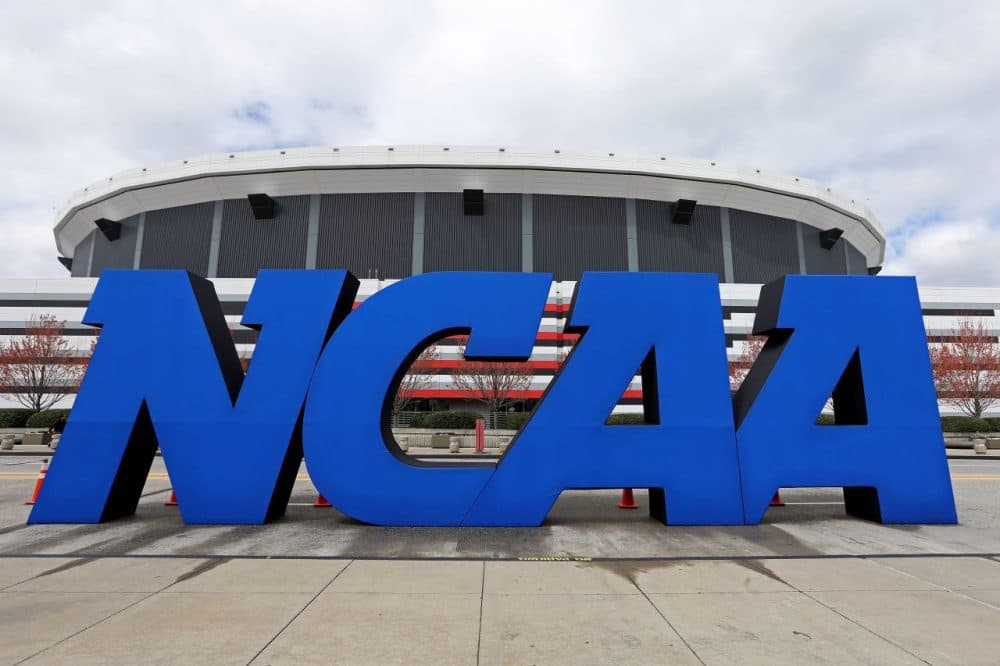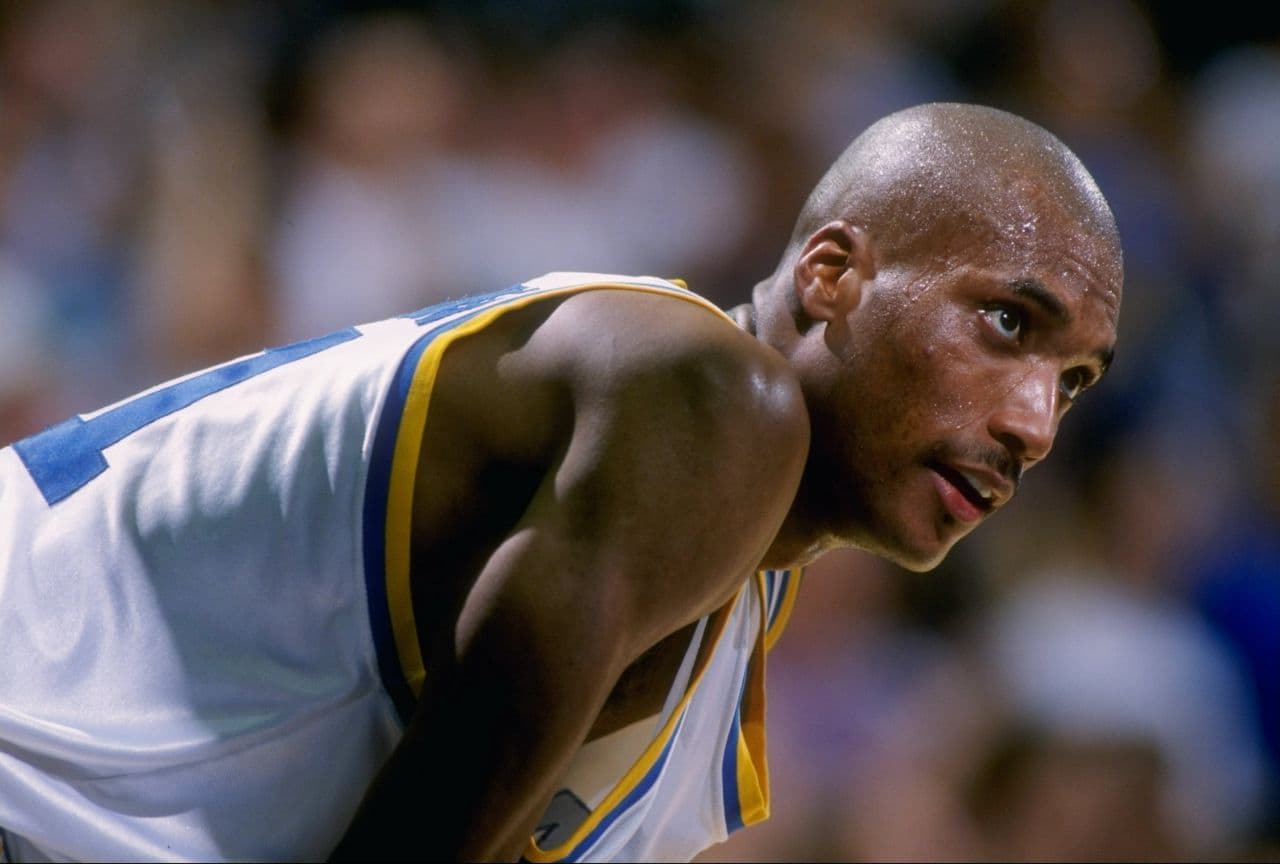Advertisement
Did The NCAA Win Or Lose The O'Bannon Case Appeal?
Resume
The NCAA suffered a huge loss this week when the 9th Circuit Court of Appeals ruled that some of the organization's amateurism rules violate federal antitrust laws. That is, unless the NCAA got a huge win this week when the 9th Circuit Court of Appeals ruled that the organization need not require schools to pay players for the use of their likenesses. In order to sift through this confusion, Bill called Michael McCann who writes about sports law for Sports Illustrated.
BL: Michael, which is it? Was this ruling a win or loss for the NCAA?
MM: Well, Bill, it's a little bit of both. I think it's mostly a loss for the NCAA because the 9th Circuit affirms the earlier court's ruling that the NCAA is in violation of antitrust laws, and also it is subject to antitrust laws. The NCAA has argued that it's in the business of education, that it's not appropriate for it to be judged under antitrust laws. There was a Supreme Court decision that it keeps citing from 1984. The 9th Circuit said no, you are subject, and you're in violation. So I think, going forward, it's certainly not a good thing for the NCAA, but as you noted, Bill, in this particular case, the NCAA got a bit of a break because its members won't have to spend up to $5,000 a year paying athletes in name, image and likeness rights.

BL: Michael, I want to make one thing clear before we go any further. The ruling basically says the NCAA is violating the antitrust laws by doing what?
MM: They're violating the antitrust laws by its members — and the members include all of these universities, across the countries and also the conferences — that they have conspired, through amateurism rules, to prevent athletes from being adequately compensated for the use of their name, image and likeness. Now, that's the big takeaway, but the 9th Circuit also said that the NCAA and its members only need to provide the cost of attendance, at least as of now. But it's still a ruling that other cases going forward lawyers could say, "Hey, look. The NCAA is subject to antitrust laws. It's in violation. We're gonna try different arguments."
BL: Well that, of course, is the next question: implications going forward. I've got to imagine that Jeffrey Kessler, the attorney who brought free agency to the NFL, has been watching the 9th Circuit very closely. Tell me about the lawsuit he's brought against the NCAA and the implications of the decision this week on that.
MM: So Jeffrey Kessler has had many smiles recently, obviously representing Tom Brady and winning Brady v. NFL, most recently. But he's also, as you mentioned, Bill, he's representing a college lawsuit, and it's brought by Martin Jenkins and other college players who argue that the NCAA is in violation of antitrust laws by capping the value of athletic scholarships to room, board, tuition, cost of attendance. Kessler argues that that's not the right metric. That in a market that's free and unrestricted, college athletes might get $500,000, maybe $1 million in an athletic scholarship, and he's probably really happy after this decision.
But it's still a ruling that other cases going forward lawyers could say, "Hey, look. The NCAA is subject to antitrust laws. It's in violation. We're gonna try different arguments."
Michael McCann
BL: Now just to keep this ping pong match going, also in the decision that came down this week, the court said offering cash sums untethered to educational expenses would turn NCAA sports into minor leagues. That doesn't sound like very good news to athletes who want to be paid fair market value.
MM: Absolutely, Bill. That is language that — the NCAA is going to look at this decision and say, "This is good language for us." But Kessler could say that language relates to name, image and likeness rights. It doesn't relate to athletic scholarships.
BL: I'm really glad we could clear that up so now we know exactly what this decision means. [Laughter] Alright, Michael, give me some sense of how this is all going to turn out.
MM: I think the NCAA will change its rules to allow for more compensation for student-athletes, particularly those student-athletes that are marquee student-athletes. Kessler's lawsuit really focuses on the star players, the players that are worth more to their schools than the value of an athletic scholarship, and he believes they should get more. If his case succeeds, that's a game changer.
This segment aired on October 3, 2015.